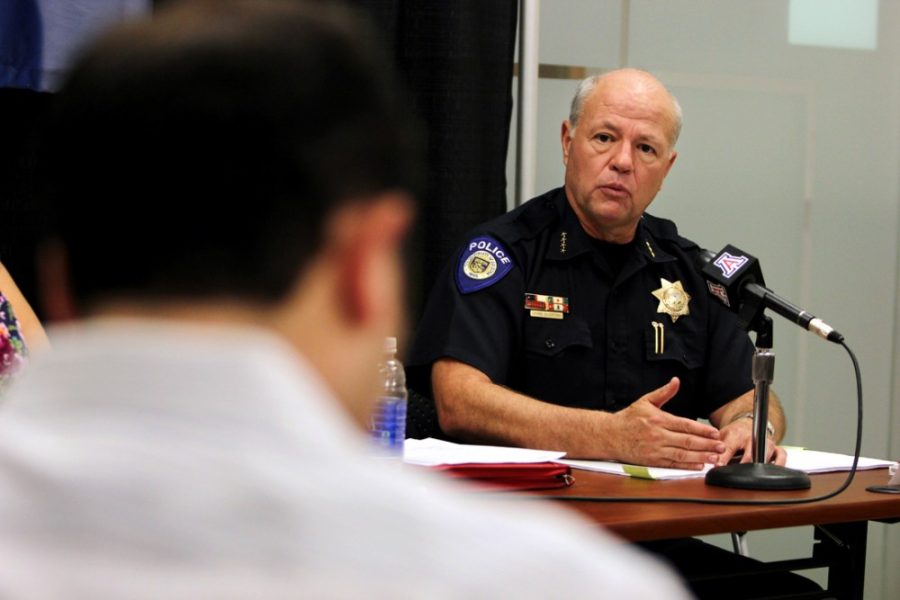At a news conference, the UA released its annual Campus Safety, Security and Fire Report on Tuesday, indicating that sexual assault and other crimes have increased within the last year.
Focuses of the event included the increase in forcible sex offenses, aggravated assault and liquor law violations. These increases consisted of forcible sex offenses from four in 2011, 19 in 2012 and 28 assaults in 2013. Aggravated assault rose from two in 2011, eight in 2012 and 16 assaults in 2013. Liquor law violations rose to 730 in 2013, up from 607 in 2012 and 450 in 2011.
In attendance was Brian Seastone, police chief of the University of Arizona Police Department, Kendal Washington White, senior associate dean of students, and Kathleen Young, coordinator of clinical services for the Oasis Program.
Seastone said that the university is committed to being proactive regarding crimes on campus, and that victims are encouraged to report crimes, even if they do not intend to prosecute.
“It is important that they report it so we can help them through this situation,” Seastone said. “I want to emphasize that one assault is too many.”
Seastone also pointed out that there was a decrease in burglaries from 70 in 2012 to 29 in 2013, and auto theft from 28 in 2012 to 12 in 2013.
“We want to emphasize that our education and programming that we have done, our institutional commitment to getting people to report the crimes, is responsible for some of these rises,” Seastone said.
He then directed the conversation to White to talk about the education that is being done by diverting students through the Dean of Students Office instead of arresting them and causing the student to have a criminal record in regards to liquor law arrests.
“Those prevention efforts are really important at the outset of what we do with our students,” White said.
White explained how the Dean of Students Office holds students who receive a diversion accountable for their actions through education.
“We are an institution of higher education,” White said. “Our goal is not about punishment, it’s about helping students understand how their actions have an impact on themselves and the rest of the university community.”
Young also talked about Oasis and what it strives to do in terms of sexual assault on campus.
Among these efforts is the use of Oasis as a confidential reporting system in situations of rape. Young said that these numbers of confidential reports are included on the annual report, but that no prosecution takes place.
Young said that the increase in the number of forcible sex offenses indicated that more students are reporting these crimes.
“I want students to know that they can report,” Young said. “I want them to know what the options are and for them to feel free to come forward and get the help and support they need.”
_______________
Follow Ariella Noth on Twitter @sheba201








